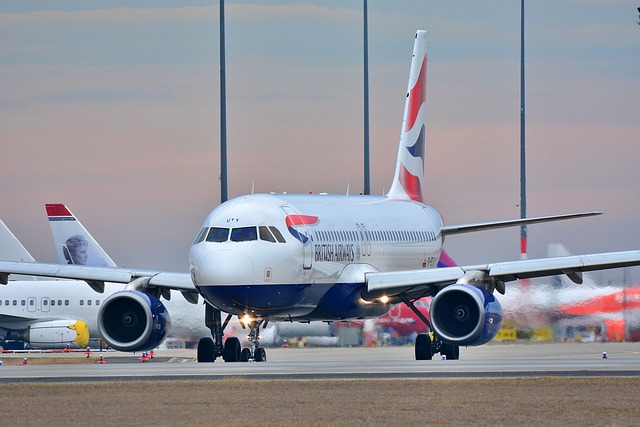English Skills Can Enhance Aviation Career Paths in the Netherlands
The aviation industry in the Netherlands offers various roles that may remain undiscovered by many. Proficiency in English is a significant asset, as it is often the primary language used in global aviation. Understanding the conditions and requirements for these roles can provide valuable insights into potential career pathways within this expanding field.

The Netherlands holds a strategic position in European aviation, with Schiphol Airport serving as one of the continent’s busiest transportation hubs. This robust aviation ecosystem creates numerous career pathways for both Dutch nationals and international professionals. However, success in this competitive field increasingly depends on specific skills—with English language proficiency ranking among the most valuable assets for career advancement and opportunity access.
Understanding the Aviation Industry in the Netherlands
The Dutch aviation sector represents a significant economic contributor, employing thousands across various specializations. Schiphol Airport alone supports over 65,000 direct jobs and contributes substantially to the national economy. Beyond Schiphol, regional airports like Rotterdam The Hague Airport, Eindhoven Airport, and Maastricht Aachen Airport create additional employment clusters throughout the country.
The industry encompasses diverse segments including commercial airlines (KLM Royal Dutch Airlines being the flag carrier), cargo operations, aircraft maintenance and repair organizations (MROs), air traffic control, airport management, and aviation support services. The Netherlands also hosts aviation training facilities and aerospace manufacturing operations that further expand the employment landscape.
This multifaceted industry continues to evolve with technological advancements and sustainability initiatives, creating both challenges and opportunities for professionals seeking long-term careers in Dutch aviation.
The Importance of English Proficiency in Aviation Roles
English serves as the international language of aviation worldwide, and this reality is particularly evident in the Netherlands’ globally connected air transport system. The International Civil Aviation Organization (ICAO) mandates English as the standard language for all international aeronautical communications, establishing minimum proficiency requirements for pilots and air traffic controllers.
Beyond regulatory requirements, English proficiency delivers practical advantages across all aviation roles. For flight crews, it ensures clear communication with air traffic control across international airspace. For maintenance technicians, it provides access to technical documentation predominantly published in English. For customer-facing roles, it enables effective interaction with the diverse international passenger base traveling through Dutch airports.
The required level of English proficiency varies by position. While pilots and controllers need formal ICAO English Language Proficiency certification (typically Level 4 or higher), other roles may require demonstrated conversational or technical English abilities. Regardless of specific requirements, higher English proficiency consistently correlates with increased employability and advancement opportunities.
Available Roles and Conditions in the Aviation Sector
The Dutch aviation industry offers diverse career paths with varying entry requirements, working conditions, and advancement opportunities. Flight operations positions include pilots, cabin crew, and dispatchers—roles that typically combine technical knowledge with interpersonal skills. Air traffic management encompasses controllers, flight information service officers, and airspace designers who ensure safe and efficient movement of aircraft.
Airport operations include passenger service agents, ramp handlers, security personnel, and management staff who keep airport facilities functioning smoothly. Maintenance and engineering roles range from aircraft mechanics to avionics specialists responsible for keeping aircraft airworthy. Additional opportunities exist in aviation safety, regulatory compliance, training, and administration.
Working conditions vary significantly across these roles. Flight crews manage irregular schedules with international travel, while ground-based positions may offer more conventional hours. Some positions involve shift work to support 24-hour operations. Salary structures typically reflect the specialized training required, with technical and safety-critical roles commanding premium compensation.
English Language Requirements Across Aviation Positions
English language requirements vary systematically across aviation roles in the Netherlands, with regulatory standards establishing minimum proficiency levels for safety-critical positions. For pilots and air traffic controllers, the ICAO Language Proficiency Requirements establish six proficiency levels, with Level 4 (“Operational”) being the minimum standard. This requires demonstrating clear pronunciation, grammatical control, appropriate vocabulary, fluent speech, comprehension, and interactive communication abilities.
Maintenance technicians typically need sufficient English to understand technical manuals, documentation, and training materials. Customer service roles require conversational English for passenger interaction, while management positions demand professional-level English for international business communication and documentation.
Many Dutch aviation employers use the Common European Framework of Reference for Languages (CEFR) to assess candidates, typically requiring B1-B2 levels for entry-level positions and C1-C2 for advanced roles. These requirements reflect both safety considerations and the practical realities of working in an international industry where English serves as the lingua franca.
Advancing Your Aviation Career Through English Training
For aviation professionals seeking to enhance their career prospects in the Netherlands, structured English language training offers a strategic advantage. Several specialized training pathways exist for different career stages and goals. Aviation-specific English courses focus on terminology, phraseology, and communication protocols unique to the industry. These programs often align with ICAO language proficiency requirements and prepare candidates for formal assessments.
General English proficiency courses build fundamental language skills that support both professional communication and everyday interactions. Technical English training targets the specialized vocabulary and documentation skills needed for maintenance, engineering, and technical roles. Business English development prepares professionals for management positions requiring negotiation, presentation, and documentation skills.
Many Dutch aviation organizations offer in-house language training, while educational institutions like the Dutch Aviation College, Delft University of Technology, and specialized language schools provide aviation-focused English courses. Online platforms also offer flexible learning options for professionals balancing training with work responsibilities.
Conclusion
English language proficiency represents a fundamental asset for aviation professionals in the Netherlands, influencing both initial employment opportunities and long-term career advancement. The internationalized nature of the industry, combined with regulatory requirements and practical operational needs, makes English fluency an essential skill across all aviation disciplines. By investing in structured language training tailored to aviation contexts, professionals can significantly enhance their value in this competitive job market while positioning themselves for career growth in the Netherlands’ dynamic aviation sector.




